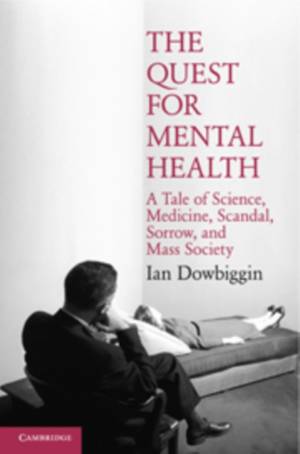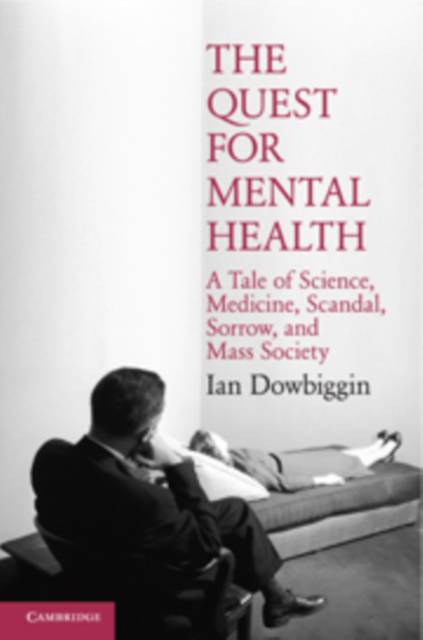
- Afhalen na 1 uur in een winkel met voorraad
- Gratis thuislevering in België vanaf € 30
- Ruim aanbod met 7 miljoen producten
- Afhalen na 1 uur in een winkel met voorraad
- Gratis thuislevering in België vanaf € 30
- Ruim aanbod met 7 miljoen producten
Zoeken
The Quest for Mental Health
A Tale of Science, Medicine, Scandal, Sorrow, and Mass Society
Ian Robert Dowbiggin
€ 43,45
+ 86 punten
Omschrijving
This is the story of one of the most far-reaching human endeavors in history: the quest for mental well-being. From its origins in the eighteenth century to its wide scope in the early twenty-first, this search for emotional health and welfare has cost billions. In the name of mental health, millions around the world have been tranquilized, institutionalized, psycho-analyzed, sterilized, lobotomized, and even euthanized. Yet at the dawn of the new millennium, reported rates of depression and anxiety are unprecedentedly high. Drawing on years of field research, Ian Dowbiggin argues that if the quest for emotional well-being has reached a crisis point in the twenty-first century, it is because mass society is enveloped by cultures of therapism and consumerism, which increasingly advocate bureaucratic and managerial approaches to health and welfare. Over time, stake-holders such as governments, educators, drug companies, the media, the insurance industry, the courts, the helping professions, and a public whose taste for treatment seems insatiable have transformed the campaign to achieve mental health into a movement that has come to mean all things to virtually all people. As Dowbiggin shows, unless systemic changes take place, the quest for mental health is likely to make populations more miserable before they become happier.
Specificaties
Betrokkenen
- Auteur(s):
- Uitgeverij:
Inhoud
- Aantal bladzijden:
- 260
- Taal:
- Engels
- Reeks:
Eigenschappen
- Productcode (EAN):
- 9780521688680
- Verschijningsdatum:
- 19/07/2011
- Uitvoering:
- Paperback
- Formaat:
- Trade paperback (VS)
- Afmetingen:
- 154 mm x 228 mm
- Gewicht:
- 367 g

Alleen bij Standaard Boekhandel
+ 86 punten op je klantenkaart van Standaard Boekhandel
Beoordelingen
We publiceren alleen reviews die voldoen aan de voorwaarden voor reviews. Bekijk onze voorwaarden voor reviews.











